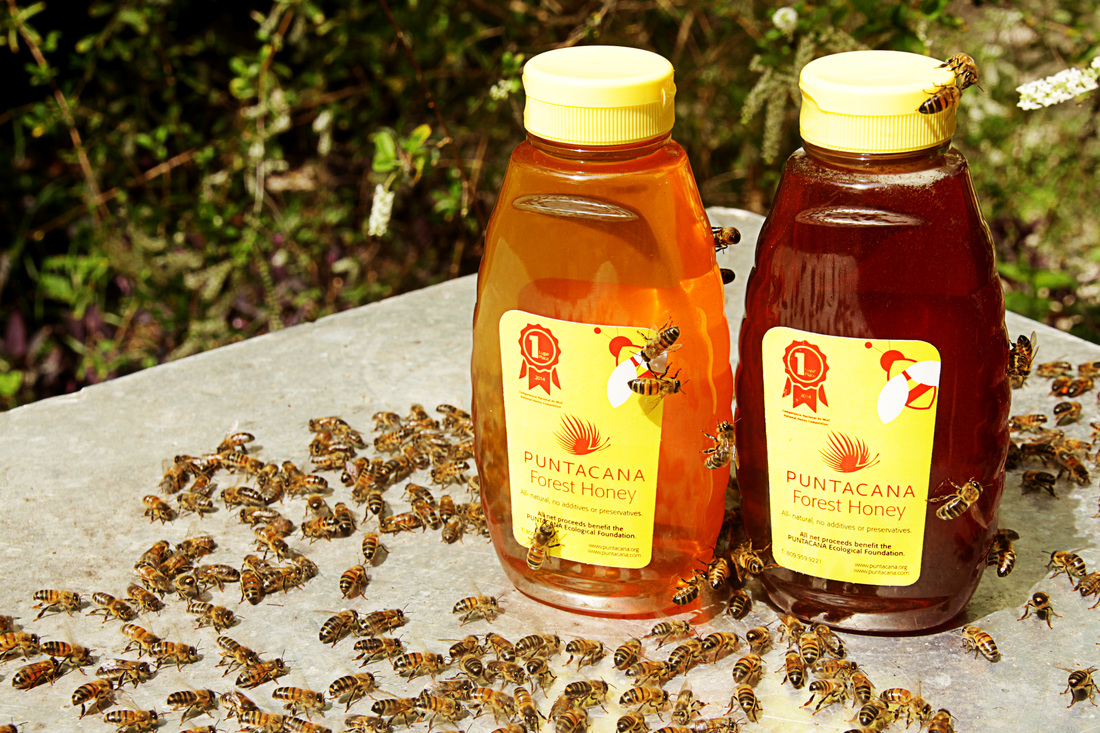|
Lately, I’ve been thinking a lot about bees. As someone whose job it is to learn interesting facts about the Puntacana Resort & Club, there is no shortage of intrigue to be found here. In the last few weeks, we’ve thoroughly covered some of the more interesting adventures and excursions we recommend for our guests, but that is only scratching the surface of some of the more interesting parts of life at Puntacana, which brings me back to my first sentence and the question everyone is probably thinking: why bees? There are a couple of reasons for having bees on the brain. The biggest reason is that a honey, which is produced by the Puntacana Ecological Foundation, recently took the top prize in the Dominican Republic’s 15th annual National Honey Competition. This is no small task either as there was stiff competition for the prize, with submissions from over 40 beekeepers all over the country. After undergoing a rigorous test of flavor, aroma, and color, Puntacana Forest Honey was named the top applicant in the “Clear Honey” category. This is the second year in the row Puntacana Forest Honey came out on top, and the cultivation of this spectacular honey is the other reason I have been thinking a lot about bees lately. Beekeeping has a rich, storied history, but we don’t have enough time to get into the full anthropology lesson right now. Here are a few things worth keeping in mind: beekeeping dates back to the Stone Age, happens all over the world, and is almost equal parts science and art. The mechanics of bee cultivation are actually rather simple. Bees collect nectar and pollen from flowers and plants, and they use that nectar to fill up honeycomb cells once they are back at the hive. Once the nectar is in place, excess water evaporates until the honey is 83% sugar and 17% water. This usually takes a few days. These cells are then covered with wax, which will be removed by the bees when they need to eat the honey. This is the product that we then take and sell, 100% organic honey. As you can probably see from the process that is used to make honey, the largest variable is the nectar and the pollen that bees are gathering. The nice thing about beekeeping in Dominican Republic (and specifically in Punta Cana) is the diversity of our local flora. Since Puntacana Forest Honey is a polyfloral honey, it is made using nectar from many different types of flowers. Since different flowers are in bloom during different times of the year, so too does the taste of the honey change. This means that no two jars of honey will ever taste or look exactly the same.
6 Comments
Doris Cassell
10/23/2015 01:19:12 pm
I will be visiting punta cana 13-20 Dec celebrating Birthday for my cousin and interested in your honey.can we bring this back to the USA?Just curious also it is very good for alergies since living here in AL people develop allergies from trees, cotton and peanuts here.
Reply
Kim
1/22/2017 11:27:19 am
I bought some of this at the airport on the way home from DR in December. It is solid sugar? Is that normal? It doesn't look anything like the pictures so I'm wondering if I have a contaminated bottle. Thanks.
Reply
Kandace
2/2/2023 07:08:54 am
That's totally normal. Honey solidifies when exposed to air, but if you warm it even slightly, it'll go back to being a smooth syrupy consistency.
Reply
8/16/2017 08:28:38 pm
I am a beekeeper from the United States and I will be visiting the area next month. I would love to have a brief tour of the hives at the Ecological Reserve and inspect a hive or two. I always enjoy visiting fellow beekeepers wherever I travel. Please reach out to me and let me know if that would be possible. Thank you.
Reply
HAYDEE MATO
12/6/2020 04:37:45 pm
My boss brought me a bottle of your honey a couple f years ago. I have used it sparingly and I just finished it. It is the best honey I have ever tasted. Is there anyway to purchase and have it shipped to the United States?
Reply
Dan grix
3/20/2022 12:02:35 pm
I need info on bee keeping g in dominican Republic
Reply
Leave a Reply. |
Puntacana BlogsOur new way of communication! Categories
All
ARCHIVES
March 2021
|




